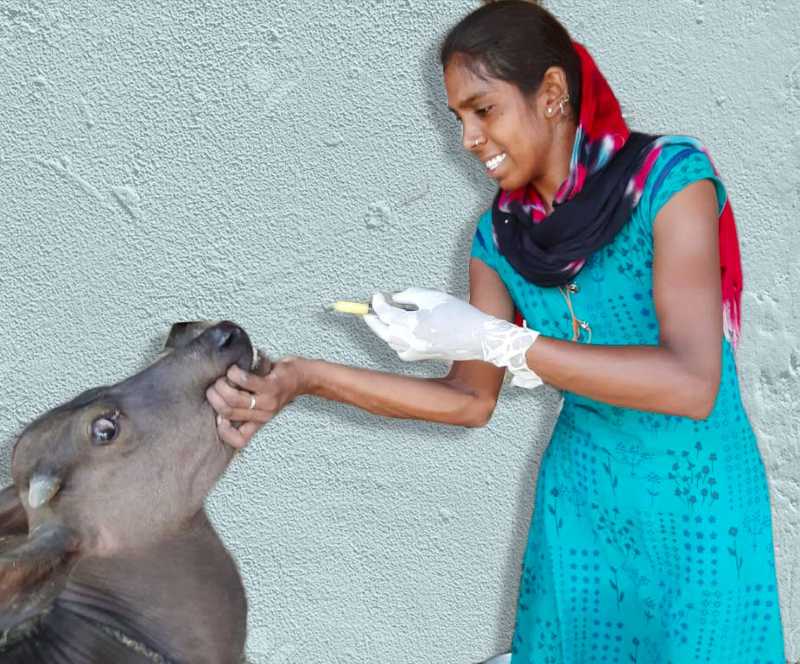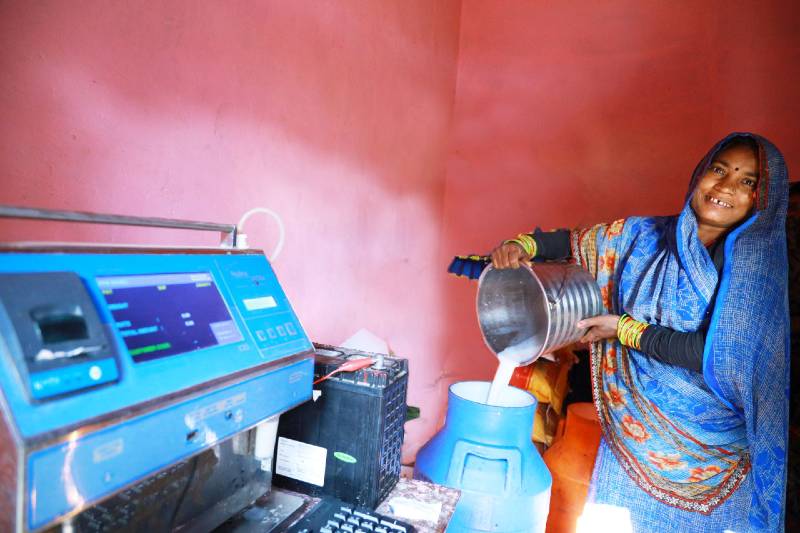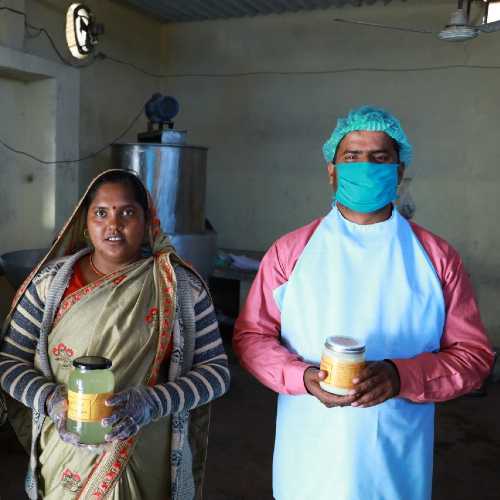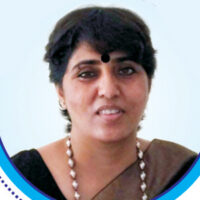Decentralised Milk Collection
Dairy is a very important source of livelihood for farmers. Rajasthan contributes over 10% to the country’s milk production. There are a lot of pre-production, production, and post-production challenges that farmers face. The milk is tested and weighed at the village milk collection center and then transported to bulk chilling units which are owned by women's producer companies.
Earlier women were selling raw chilled milk but in recent times, things have evolved and these women are now processing the milk into several value-added products such as milk, paneer, butter, ghee, and khoya under the brand “Katori” which is helping farmers to access better prices and effectively engage with the market.
Interventions

Capacity Building of Farmers
We build the capacities of farmers on rearing and management practices which include shelter management, balanced cattle feeding, deworming, vaccination, and clean milk production. The program aims to reduce the mortality and morbidity of animals and improve the quality of milk produced. We offer regular veterinary services which include vaccination, treatment camps, fertility camps, etc to improve the overall health of cattle. At the grass-roots level, our livestock cadres are helping farmers to access relevant information and services. We orient farmers on various dairy development initiatives like testing of milk fat, SNF, and quality aspects. We also work closely with local livestock departments to facilitate service delivery and access to government schemes and services.





